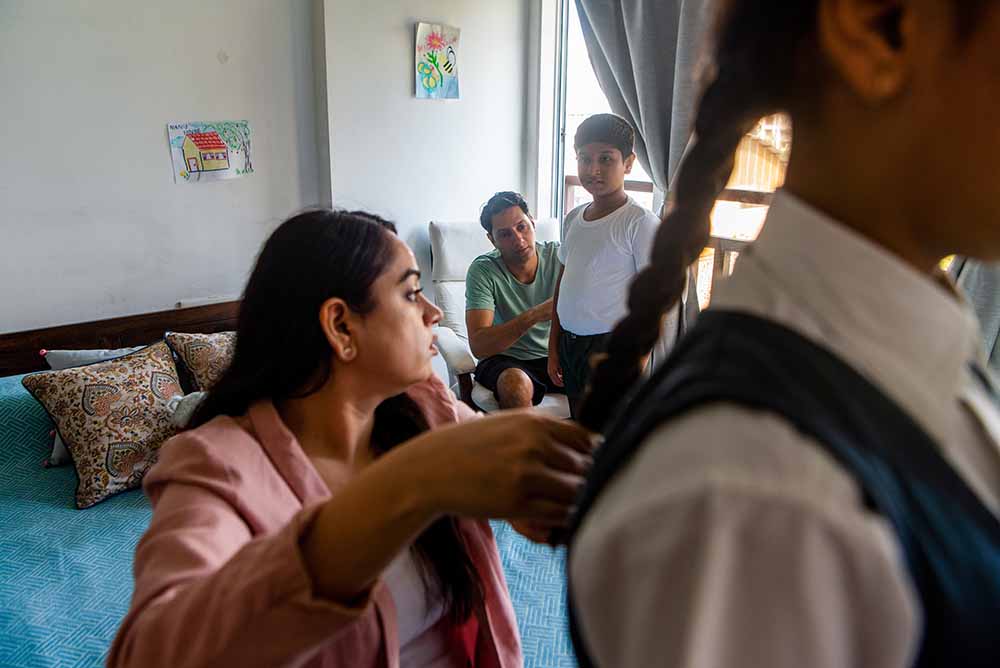Engaging and interacting with multiple generations such as Baby Boomers, Generation X, Millennials, Gen Z, and Generation Alpha gives us insights into how each of these demographics thinks and how to deal with them. Sometimes, there is an evident lapse in understanding and communication when these generations interact with each other. We have experienced this at home, work and at social events.

For instance, if a Millennial couple tries to explain to her/his parents that they want to be childless, the opposite party’s reaction is usually one of shock and disbelief (in most cases). This is because this concept is completely unheard of for their generation, and they then go on to judge their children as being influenced by western culture, and so on. Now imagine raising a child, where you are to figure them out and also adapt to how their generation thinks and works.

Parental guidance is important, but only until a child reaches a particular age. Every human being is unique, so it is necessary to recognise and accept oneself as the kind of parent one is. One of the many reasons why adult children walk away from their parents is because some parents foster specific anxieties, which manifest as a lifelong tendency to provide unsolicited counsel. They believe that their adult children are still incapable of acting responsibly and making the right choices. In any case, one wonders whether this is a reflection of their own parenting.

Elderly parents should recognise that once their child is married or established in their career, it's time to step back and let them handle their responsibilities and decisions independently. In the current situation, the parent who makes the conscious decision to adopt a positive outlook and shed the skin of parenting can see an increase in family attachment and bonding. These mindful parents see their kids grow up with a stronger sense of accountability. They express how happy they are with their child’s choices. Without meddling or forcing their own preferences on them, they enable their child/children to fulfil their aspirations.
Clinical Psychologist Mehezabin Dordi shares some of the parenting trends that parents should bring back and the ones to let go of.

Encouraging Unstructured Play: Bring back the tradition of letting children engage in free play without strict schedules. It fosters creativity, problem-solving, and social skills.
Teaching Life Skills Early: Encourage children to participate in household chores, manage time, and make simple decisions. It nurtures responsibility and independence early on.

Prioritising Family Time: Regular meals together, family outings, or game nights create strong emotional bonds and provide a sense of belonging.
Setting Boundaries with Empathy: Past generations excelled in balancing discipline with love. Clear, consistent boundaries with explanations foster respect and security.
Modelling Resilience: Share family stories of overcoming challenges. It helps children understand perseverance and adaptability.
Helicopter Parenting: Over-involvement in a child's life stifles independence and problem-solving skills.

Over-Reliance on Digital Gadgets: Excessive screen time affects emotional bonding, focus, and physical health. Instead, encourage outdoor activities and hands-on experiences.
Comparisons with Others: Comparing children to siblings or peers can harm their self-esteem and motivation. Focus on the individual progress of the child and their unique talents.
Ignoring Mental Health: Dismissing or trivialising a child's emotions leads to long-term emotional distress. Be attentive and create an environment where children feel safe sharing.
Consistency is Key: Children thrive in predictable environments where rules, routines, and consequences are consistent.
Connection Over Perfection: Focus on building a genuine connection with your child rather than striving to be a ‘perfect parent.’ Quality time and active listening are invaluable.
Adaptability: Every child is unique. Parenting should be flexible to cater to a child's individual needs and changing circumstances.

Encouraging Self-Expression: Allow children to express their thoughts and feelings without fear of judgment. It builds confidence and emotional intelligence.
Emphasising Emotional Regulation: Teach children to identify and manage their emotions through techniques like mindfulness or journaling.
Learning from Multigenerational Wisdom: Insights from grandparents can provide a balanced perspective on patience, discipline, and family values.
By blending timeless values with modern understanding, parents can nurture well-rounded, emotionally secure, and capable children.
Image source: TOI